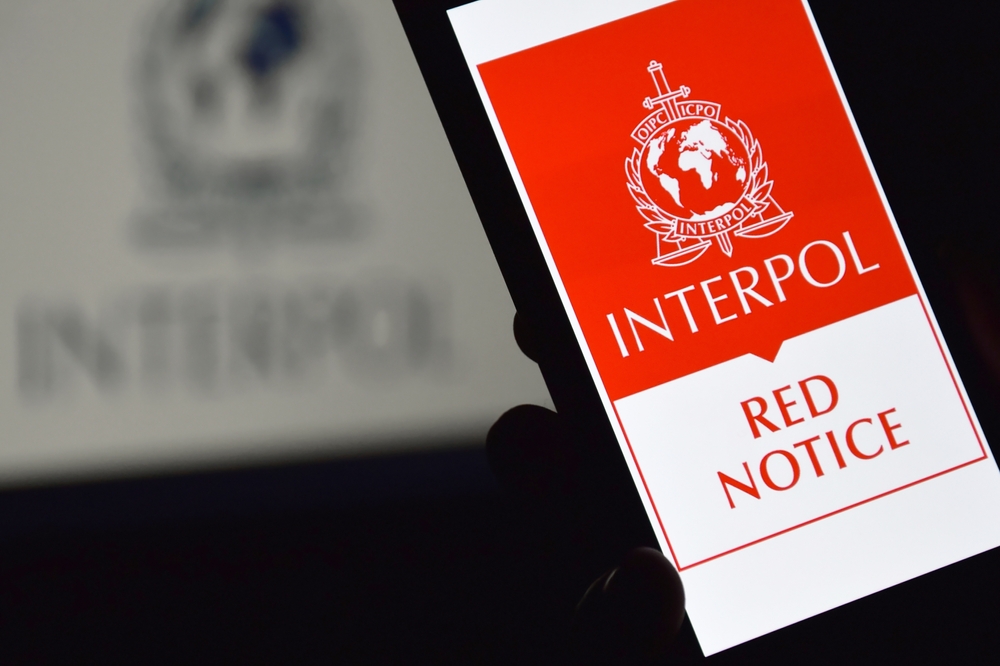At Red Notice Monitor, we criticise when the system fails but applaud when the rights guaranteed under Interpol’s legal framework are upheld. In a significant decision, Interpol has refused a Red Notice request from Kyrgyzstan targeting Rinat Tuhvatshin, co-founder of the independent media outlet Kloop. This rejection underscores Interpol’s constitutional prohibition on involvement in politically motivated activities, amid ongoing concerns about authoritarian regimes exploiting international law enforcement mechanisms.
The decision comes as global press freedom faces mounting threats, with organisations recording a sharp rise in journalist detentions and prosecutions worldwide. In Central Asia, notably, independent media have declined rapidly, reflecting broader authoritarian consolidation. This case exemplifies these trends whilst testing Interpol’s evolving reforms. The denial of Kyrgyzstan’s request is positive, yet it exposes ongoing shortcomings that allow temporary harms to occur.
Kyrgyzstan, once praised as relatively democratic after its 2010 revolution, has experienced a significant decline in media freedoms under President Sadyr Japarov’s administration since 2020. Human Rights Watch and Amnesty International have repeatedly criticised these actions, noting they breach Kyrgyzstan’s obligations under international human rights law, including the International Covenant on Civil and Political Rights.
Kloop, established in 2007 by a group of young journalists including Tuhvatshin, became a cornerstone of investigative reporting in the region. As a member of the Organised Crime and Corruption Reporting Project, it has produced groundbreaking investigations on corruption, electoral fraud, environmental degradation and border conflicts. These investigations have often implicated powerful figures with close ties to the presidency.
The crackdown against the independent media outlet intensified in early 2024. In February, a Bishkek court ordered Kloop’s dissolution, citing the dissemination of “negative information” deemed harmful to public mental health—a charge widely criticised as absurd and politically motivated. In January, authorities had targeted 11 employees of Temirov Live, another independent outlet, charging them with “inciting mass unrest.” On 27 October 2025, a Kyrgyz court designated Tuhvatshin and several colleagues as “extremists.” This label extended to Kloop’s social media accounts and those of Temirov Live, effectively banning their operations within Kyrgyzstan. For the first time in the country’s history, entire news outlets were branded extremist organisations. Authorities framed these measures around allegations of “criminal communicative intent,” asserting the outlets aimed to undermine governmental stability. Critics argue this is a thinly veiled attempt to eliminate voices exposing corruption and abuse of power.
A Red Notice is an international request for the location and provisional detention of an individual for extradition purposes (see our Back to Basics series). Kyrgyzstan’s request for Tuhvatshin was based on the October 2025 extremism classification. Interpol’s Secretariat rejected it under Article 3 of its constitution, which prevents involvement in political, military, religious or racial issues.
Interpol’s Director of Communications, Samuel Heath, confirmed the decision: “Interpol’s constitution has strict rules preventing our system from being used for political purposes, and so we have declined the Red Notice request.” Despite the rejection, the notice was temporarily visible in at least one member country’s law enforcement database as “pending review,” highlighting procedural delays that can expose targeted individuals to immediate risks, including arbitrary detention during travel, even when notices are ultimately invalidated.
Tuhvatshin expressed dismay: “I’m very sad that the Kyrgyz authorities have decided to abuse the Interpol system. I fear this will harm our country’s reputation. This system was created to locate dangerous criminals around the world, but our authorities have chosen to use it to persecute journalists.” His statement echoes sentiments from other victims of similar tactics. Kyrgyz human rights advocate Leila Nazgul Seiitbek described the strategy as an attempt to “destroy a critic” through extraterritorial means.
This incident highlights the persistent instrumentalisation of Interpol’s notice framework by authoritarian regimes to target dissidents, journalists and activists in exile. Interpol’s Commission for the Control of Files plays a crucial role in assessing and rejecting non-compliant requests. However, systemic vulnerabilities remain, including delays in database synchronisation and the lack of universal pre-issuance scrutiny. Diffusions—less formal bilateral alerts—pose even greater risks, as they more easily circumvent central review.
The case highlights the need for reforms, including increased transparency in notice adjudication and stronger data safeguards. Recent initiatives, such as the 2021 updates requiring stricter checks for individuals with refugee status, show progress. In Europe, Members of the European Parliament have called for similar measures, urging the adoption of more robust mechanisms to prevent authoritarian misuse.
Individuals potentially subject to similar Red Notices should monitor Interpol’s public database – though it covers only a subset of notices – and consider proactive inquiries to the CCF for verification or removal. This rejection demonstrates the potential effectiveness of Interpol’s oversight mechanisms whilst emphasising the need for further improvements. It also highlights the vulnerability of press freedom in transitional democracies like Kyrgyzstan, where independent journalism remains vital for accountability.
Whilst the rejection of Kyrgyzstan’s request offers hope, it remains just one skirmish in a broader struggle against transnational repression. Ongoing international pressure and institutional reforms are essential to ensure systems like Interpol uphold justice rather than serve authoritarian interests. As global interconnectedness grows, so must safeguards against its misuse, defending not only individuals like Tuhvatshin but also the fundamental principles of free expression and human rights worldwide.
—
Image: Unsplash



